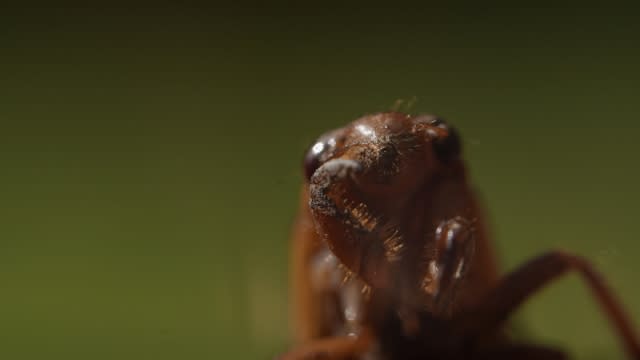Do cicadas bite? Prepare for spring's incoming swarm with these tips

As spring temperatures increase, so does the anticipation — or anxiety, depending who you talk to — about this year's rare, extra-large emergence of periodical cicadas.
Two different broods, Brood XIX and Brood XII, will make their way out of the ground at the same time, ready to mingle, mate and ultimately die in the span of a few weeks. Because of their respective 13- and 17-year life cycles, it's been well over 200 years since these two groups arrived together.
Entomologists are pumped, but the general public ... much less so. If you live near one of the zones where the cicadas will emerge together, you may be bracing yourself for a nightmarish onslaught of rather large, loud, flying insects.
But don't fear! Periodical cicadas come in peace. In fact, they've been here all along, living underground for years as they peacefully feed on tree and plant liquids.
Nevertheless, you probably have some questions, especially if you've never encountered these natural wonders in such large numbers.
First off, the one on everyone's mind:
Do cicadas bite?
Unless you're a tree or a plant, the answer is a solid "no."
"Their mouths have no mandibles — or jaws — and they have no physical characteristics like a stinger with which to defend themselves," Timothy Best, a board-certified entomologist and technical manager at Terminix, told Prevention.
Their mouths are like a straw; they can't chomp. So if a cicada tried to bite you in an attempt to extract life-giving nutrients, it simply couldn't.
What if my dog eats a cicada?
A cicada or two is no big deal. They're not poisonous or venomous. After they die, however, their bodies are rather crispy, which may entice your pets into sneaking a sample.
Just don't let your pup (or your cat) go too far with this gross snack. Too many cicadas can cause stomach trouble, sometimes serious.
"In most cases, your dog will be fine after eating a few cicadas," Dr. Jerry Klein, chief veterinary officer of the American Kennel Club, said on the AKC website. "However, dogs that gorge on the large, crunchy insects will find the exoskeleton difficult to digest and can suffer serious consequences."
Don't let your dog feast on the critters. But if they do get away with it, watch out for signs of gastrointestinal distress, and call the vet if anything seems worrisome. (The same goes for cats, too.)
SEE MORE: Map shows where billions of cicadas will soon emerge in the US
Will cicadas kill my plants?
No — but with caveats.
While cicada nymphs are content to sip on the juices from plant roots, there is some evidence that adults — the big ones that will be flying around soon — may nibble on the occasional bit of plant or tree material.
But the real trouble comes from egg-laying female cicadas. They create small slits in woody tree branches and lay their eggs inside. Too many slits on a young branch can weaken it to the point of breaking, and with billions of cicadas looking to lay eggs, that's a problem.
If you're worried about any young trees on your property, you can cover the branches with fine-mesh mosquito netting to send mama cicadas elsewhere. Older trees should be fine.
Will pesticide keep cicadas away?
According to the Environmental Protection Agency, pesticides won't do much to dissuade cicadas. There are simply too many of them — we're talking trillions of insects here. The few you kill or ward off from your yard won't make a bit of difference.
Not only that, pesticides could inadvertently harm birds or other animals that eat cicadas. People and pets can also be exposed to dangerous chemicals. It's best to avoid putting down pesticides.
So, good luck out there, everyone. Whatever you do, remember that you're witnessing a historic natural event, and it will all be over in a matter of weeks.
Who knows? You might even miss the cicadas when they're gone.
